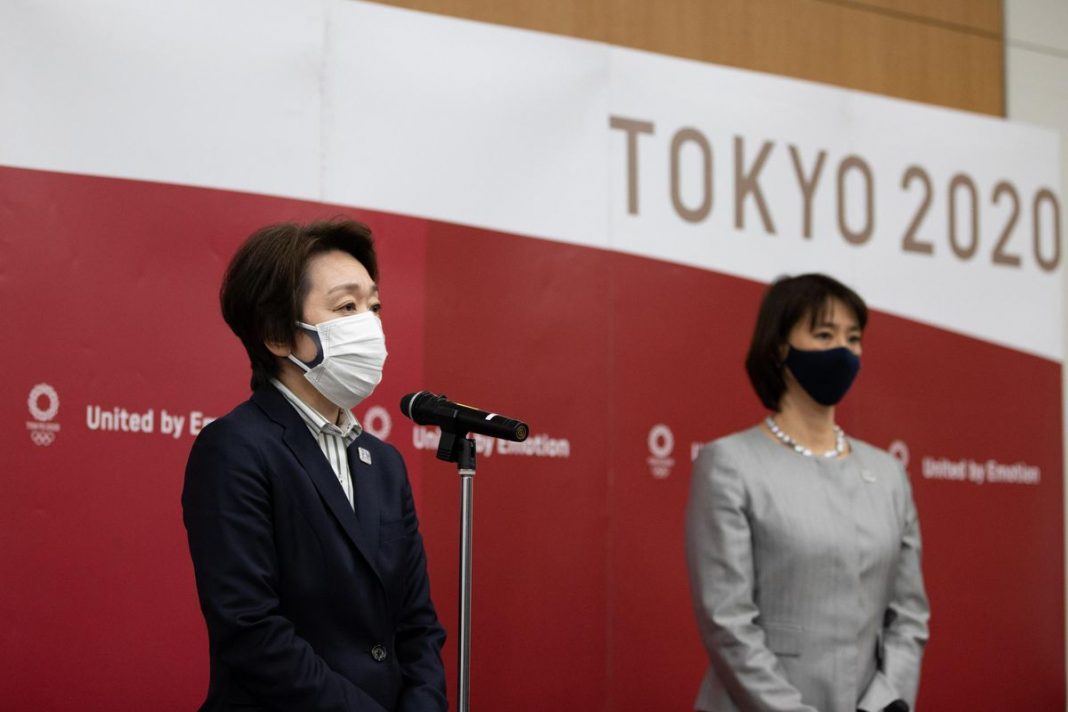The Tokyo 2020 Olympics have garnered a lot of international news attention given the unfolding Covid-19 situation, and very recently, given the row over sexism. The unforgiving remarks by former Japanese Prime Minister Yoshiro Mori, that female members of the Japanese Olympic Committee talk too much, have led to international outcry and his resignation. Two weeks since the incident, Bloomberg reports that more than 1,000 volunteers for the Games have withdrawn, and the new Committee President, Seiko Hashimoto, announced a new committee on gender equality.

TOKYO, JAPAN – FEBRUARY 24: Tokyo 2020 Organising Committee President Seiko Hashimoto speaks to … [+]
Getty Images
For a country that ranks 121st out of 153 countries in the World Economic Forum’s Global Gender Gap Report – the largest gender gap among advanced economies, the Tokyo 2020 Olympics has thrust the situation of gender equality in Japan into spotlight. “We as the Organizing Committee can do more on gender equality”, said Organizing Committee President Seiko Hashimoto, a former Olympic athlete and a woman, as she announced a new team to promote gender equality effective 25 February, led by Kotani Mikakto, two-time Olympic medallist in artistic swimming and also a woman. Hashimoto also added that she intends for at least 40% of the Organizing Committee to be women.
Could this be a pivotal moment in Japan’s journey towards gender equality? Rena Suzuki Wagner, Co-Founder of Lean In Tokyo, believes that this is a small step forward. “I believe the change in the organizing committee leadership is a great example of how a public uproar made some positive difference for gender equity in a highly recognized political stage,” says Suzuki Wagner. Female representation in politics in Japan is extremely low–data from 2018 shows that only 10.2% of Japan’s lawmakers were women, the lowest percentage among G20 nations. While there are more pressures to improve female representation, women also do not necessarily hold the decision-making power. A few weeks ago, the ruling party of Japan, the Liberal Democratic Party, has invited five women to attend their meetings as observers but the women were not allowed to speak.

Rena Suzuki Wagner, Co-Founder of Lean In Tokyo, spoke at a Lean In event.
Rena Suzuki Wagner
Yet, what would it take for sustained change towards gender equality to continue? Suzuki Wagner, who started Lean In Tokyo while working at the Investment Banking Division at Merrill Lynch Japan Securities, thinks that sustained change will require the commitment of Japanese government and corporate leaders to challenge systemic sexism, but they are not there yet. The positive change resulting from the Olympics happened largely because of international pressures. “After the Olympics, Japan will go back to a country without enough international exposure and pressure,” says Suzuki Wagner. “If we look at how this event unfolded, I think it was a chain reaction that will be hard to repeat moving forward. The Japanese public opinion towards Yoshiro Mori reaching and negatively impacting the international perception of the Olympics. That did not sit well with the international sponsors of the event and the international Olympics organization who in turn pressured the Japanese government to change.”

TOKYO, JAPAN – FEBRUARY 11: A man holds a placard with pictures of Yoshiro Mori during a protest on … [+]
Getty Images
Sustained change towards gender equality may be propelled by the next generation of Japanese women taking action, including Momoko Nojo, who started the #DontBeSilent campaign that led to the global outrage against Yoshiro Mori in the first place, and Suzuki Wagner herself. “I unfortunately do not see enough leaders in today’s Japan who are not afraid to change the status quo and can only do my part and hope for a better tomorrow,” says Suzuki Wagner.




